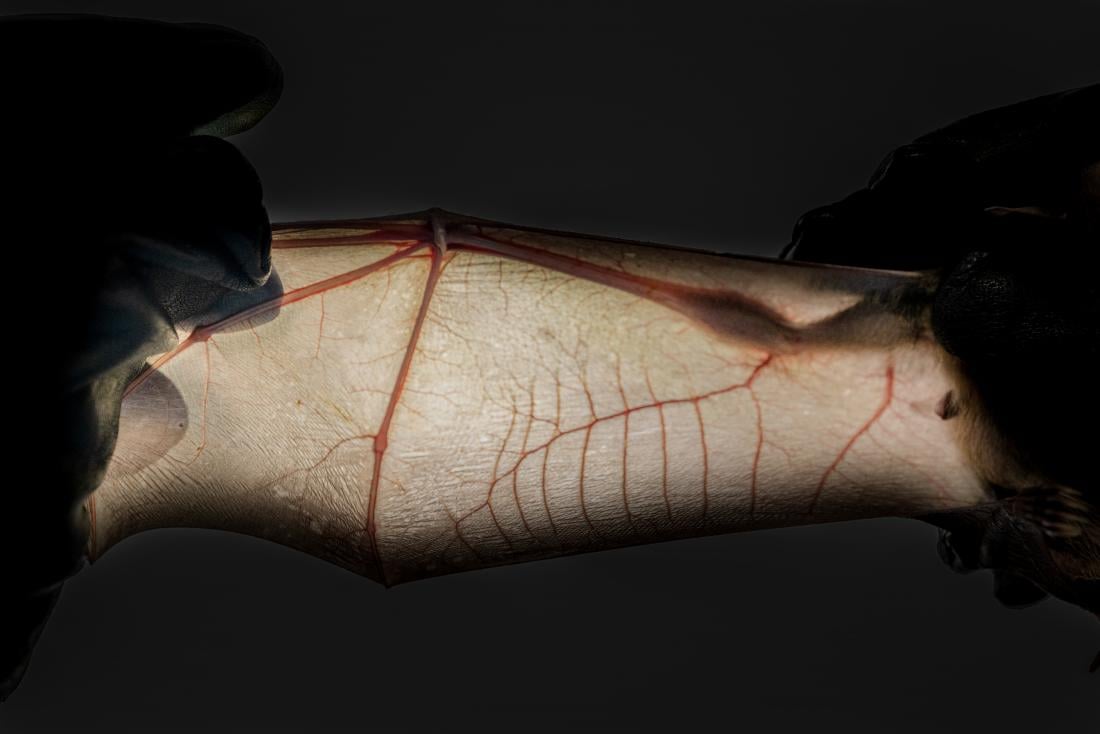Right wing of a cave nectar bat (Eonycteris spelaea) extended to show the forearm, plagiopatagium, and supplying vasculature.
SINGAPORE, 27 October 2020 – Bats act as reservoirs of numerous zoonotic viruses, including SARS-CoV, MERS CoV, Ebola virus, and—most likely—SARS-CoV-2, the pathogen behind the ongoing coronavirus pandemic. However, the molecular mechanisms bats deploy to tolerate pathogenic viruses has remained unclear.
Now scientists from Duke-NUS Medical School, Singapore, have discovered novel molecular mechanisms that allow bats to tolerate zoonotic viruses without getting sick. Published this week in the Proceedings of the National Academy of Sciences (PNAS), the study suggests that bats adopt unique strategies to prevent overactive immune responses, which protects them against diseases caused by zoonotic viruses.
The team examined three bat species—Pteropus alecto (black fruit bat), Eonycteris spelaea (cave nectar bat), and Myotis davidii (David's myotis bat)—and identified mechanisms that balance the activity of key proteins that play a major role in mediating immunity and inflammatory responses in mammals. These mechanisms enable bats to harbour and transmit zoonotic pathogens without setting off the detrimental consequences of immune activation.
One of the mechanisms bats use is to reduce the levels of caspase-1, a protein that triggers a key inflammatory cytokine protein, interleukin-1 beta (IL-1β). Another mechanism they employ hampers the maturation of IL-1β cytokines through a finely-tuned balancing between caspase-1 and IL-1β.
“Suppression of overactive inflammatory responses improves longevity and prevents age-related decline in humans. Our findings may offer potential insights to the development of new therapeutic strategies that can control and treat human infectious diseases,” said Professor Wang Linfa, senior and corresponding author of the study from Duke-NUS’ Emerging Infectious Diseases (EID) Programme.
"This study exemplifies the world-class research led by our talented faculty to advance fundamental scientific knowledge. Professor Wang’s research is all the more important in the context of COVID-19, by contributing to a greater understanding of how zoonotic diseases persist in nature, and potentially aiding new approaches to managing future outbreaks,” said Professor Patrick Casey, Senior Vice-Dean for Research, Duke-NUS Medical School.



